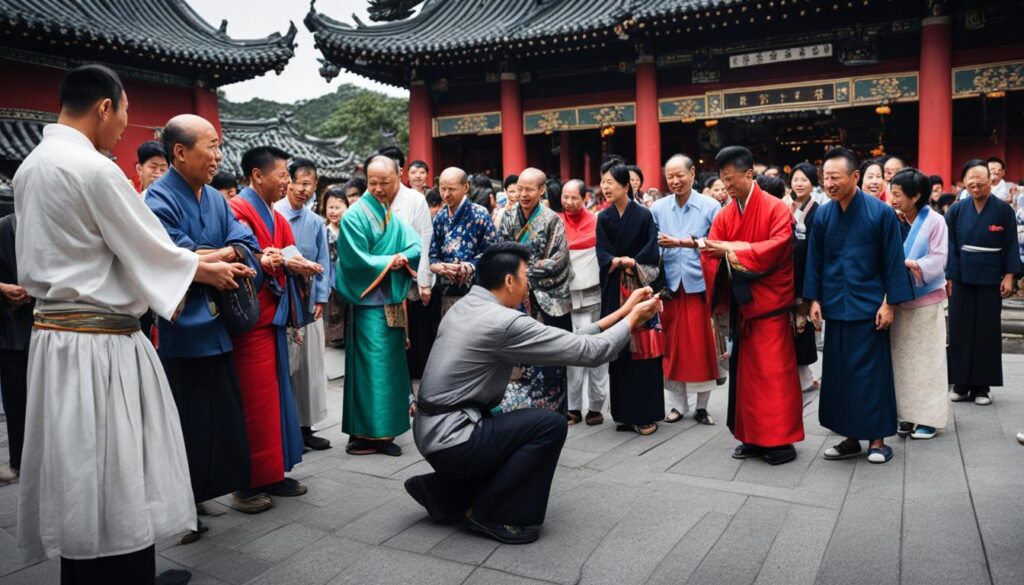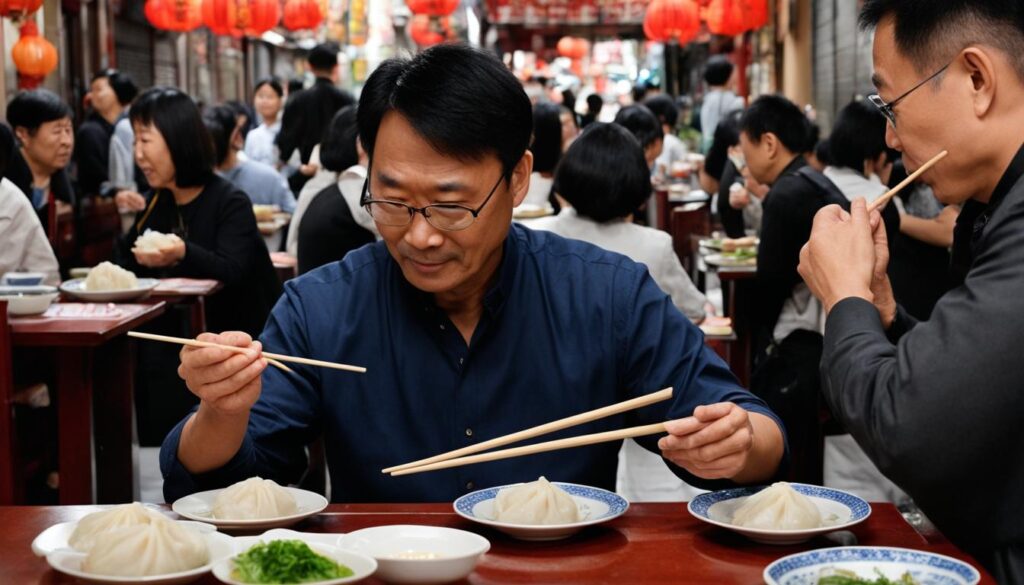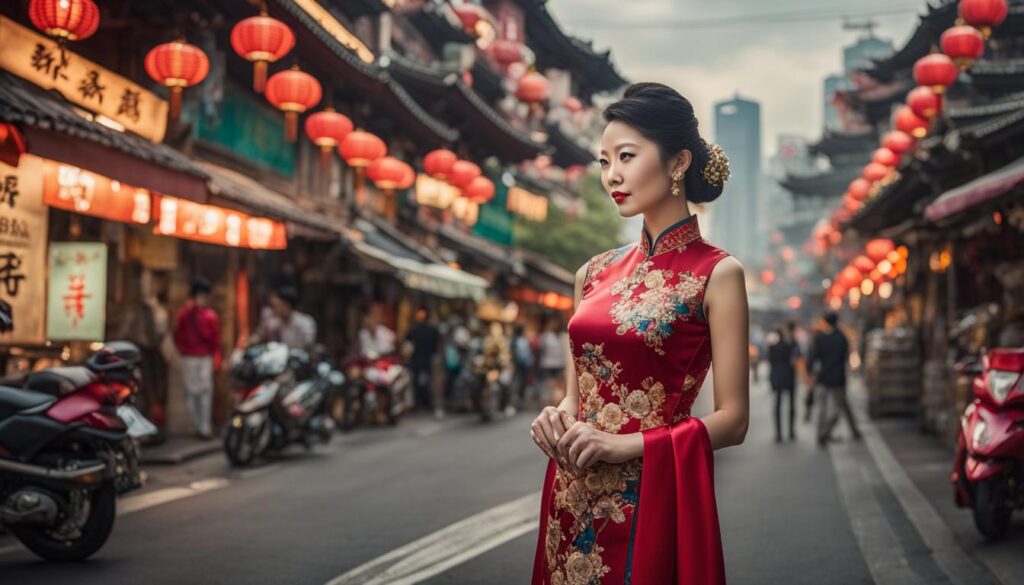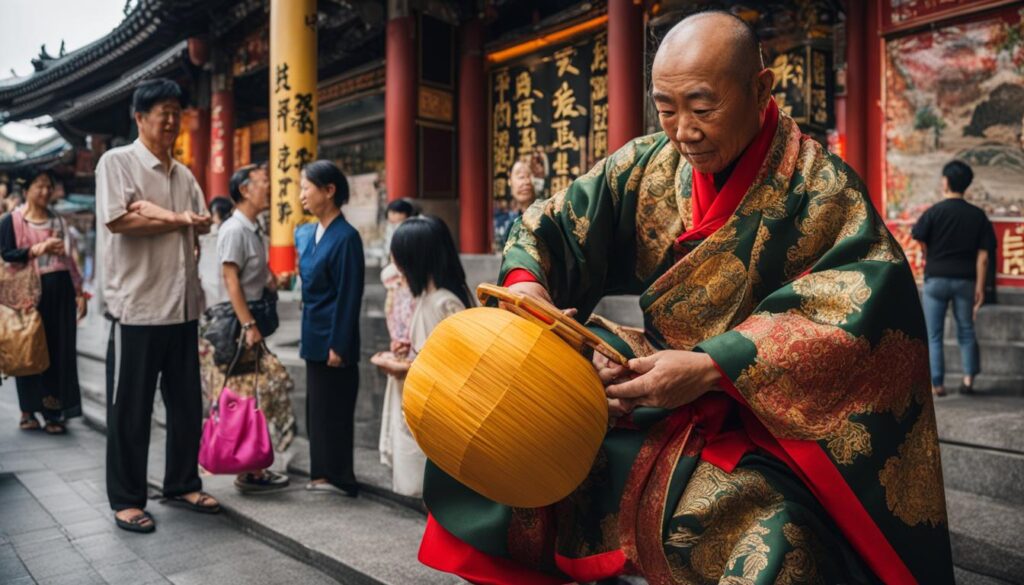Are you planning a trip to Taipei and want to ensure that you respectfully navigate the cultural norms and customs? Understanding cultural etiquette and customs to observe when visiting Taipei is essential for a smooth and respectful trip. Taipei, a vibrant and bustling city in Taiwan, has a rich cultural heritage that spans over thousands of years. With this guide, we will give you insights on cultural etiquette and customs to make your trip to Taipei more fulfilling and respectful.
This article will delve into the cultural background of Taipei, explore the customs, traditions, and values that shape Taiwanese etiquette, and offer guidance on proper greetings and interactions, dining etiquette, clothing and appearance, language and communication, visiting religious sites and temples, gift giving and receiving, and public behavior and etiquette.
By adopting a respectful approach to the unique cultural customs of Taipei, you will be able to create a positive lasting impression and enjoy an enriching travel experience. Let’s dive in!
Understanding Taiwanese Culture and Etiquette
Taipei is a city with a rich cultural heritage, and locals take pride in their customs and traditions. Understanding Taipei cultural norms, Taiwanese etiquette, and Taipei customs and traditions is vital when visiting this beautiful city. The intricate network of customs and traditions in Taipei is shaped by Confucianism, Taoism, Buddhism, and many other cultural influences.
Hierarchy and respect for elders play crucial roles in Taipei society, and the locals value harmony within social interactions. Taiwanese people are polite and considerate, and they expect visitors to adhere to their cultural norms. Learning about the values that shape Taiwanese society is essential for travelers who seek to be respectful and embrace the local culture.
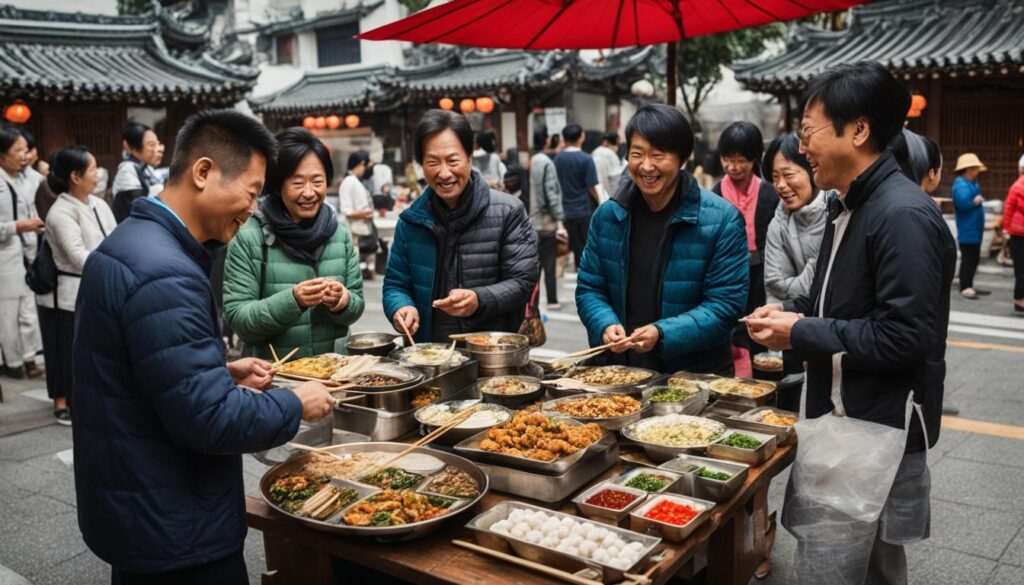
Greetings and Interactions
When it comes to respecting Taiwanese culture, observing proper etiquette during greetings and interactions is crucial. Politeness and cordiality are highly valued in Taipei, and taking the time to learn how to greet and address individuals can go a long way in establishing positive relationships during your visit.
Bowing: Bowing is a common way of showing respect in Taipei, especially towards elders or individuals of higher social status. A slight bow with your hands at your sides is appropriate for most situations, but a deeper bow with your hands in front of your body is reserved for more formal occasions.
Handshakes: Handshakes are also commonly used in business settings and with Westerners. However, it’s important to be mindful and follow the lead of your Taiwanese counterparts on whether to initiate a handshake or not, as some may prefer a bow.
Addressing Others: Formal titles and last names are typically used for individuals in professional or formal settings, such as doctors or government officials. In casual settings, first names or appropriate honorific titles can be used. When addressing someone, it is also respectful to acknowledge their seniority by utilizing the appropriate pronoun.
Physical Contact: The level of physical contact varies depending on the relationship and situation. While hand-holding and hugging are not common in Taipei, it is not uncommon for friends of the same gender to link arms or hold hands while walking. However, it’s important to be mindful and respect personal boundaries.
Keeping these tips in mind can help you show respect and establish positive relationships during your visit to Taipei.
Dining Etiquette in Taipei
When dining in Taipei, it’s important to be aware of the cultural do’s and don’ts to show respect towards your hosts and food. Observing Taipei’s cultural sensitivity is key to having an enjoyable meal experience.
Table Manners:
- Wait for the host to start eating before you begin.
- Do not leave chopsticks sticking straight up in your food. This is considered bad luck and resembles joss sticks used for ancestral worship.
- Do not blow your nose at the table, instead excuse yourself to the restroom.
- Do not talk on your phone, play games, or engage in any other distracting activities at the table.
Chopstick Usage:
- Do not use chopsticks to point at others.
- Do not cross your chopsticks, as it is seen as a symbol of death.
- When not in use, place your chopsticks on the provided chopstick rest, or across the top of your bowl.
Seating Arrangements:
Positioning and seating are essential considerations when dining in Taipei, as they reflect the social hierarchy and level of respect.
| Seat Position | Description |
|---|---|
| The head of the table | The most important seat, reserved for the host. |
| To the right of the host | The second most important seat, reserved for the second-ranked guest. |
| To the left of the host | The third most important seat, reserved for the third-ranked guest. |
| The middle of one side of the table | The least important seat, reserved for the youngest or least important member of the group. |
When dining in Taipei, it’s courteous to thank your host after the meal. Saying “Chi xie” (pronounced “chee-shieh”) means “thank you” in Mandarin. Showing gratitude towards your host will leave a positive impression and appreciation of Taipei’s cultural sensitivity.
Clothing and Appearance
When it comes to clothing and appearance in Taipei, it’s important to be mindful of local customs and cultural sensitivities. Generally, dress codes are conservative, with a focus on modesty and cleanliness. Avoid wearing revealing clothing or anything too casual, as it may be seen as disrespectful.
For formal occasions, such as business meetings or weddings, dress codes can be quite strict, with black and white being the most traditional colors worn. Women are often expected to wear dresses or skirts, and men should wear suits or dress pants with a shirt and tie.
When visiting temples or other religious sites, it’s important to dress modestly and remove your shoes before entering. Long pants or skirts and shirts that cover your shoulders are generally required.
Comfortable footwear is a must when exploring Taipei’s many attractions. Avoid wearing flip-flops or open-toed shoes, as they can be seen as too casual for certain settings. Sneakers or closed-toe shoes are good options for walking around the city.
Grooming is also important in Taipei, with cleanliness being highly valued. Keep your hair and nails well-maintained and avoid excessive makeup or styling.
“Taipei’s dress codes are conservative, with a focus on modesty and cleanliness. Avoid wearing revealing clothing or anything too casual, as it may be seen as disrespectful.”
Language and Communication
When traveling to Taipei, it is important to be aware of the cultural do’s and don’ts in order to avoid misunderstandings. Understanding basic Mandarin phrases can greatly enhance communication and show respect for the local culture.
Remember that tone of voice and non-verbal cues are just as important as the words you use. Speak calmly and clearly, avoiding loud or aggressive communication. When in doubt, observe how locals speak and interact with each other.
Here are some basic Mandarin phrases to help you get started:
| Phrase | Translation |
|---|---|
| Nǐ hǎo | Hello |
| Nǐ zhēn piào liàng | You look beautiful |
| Xièxiè | Thank you |
| Bù hǎoyìsi | Excuse me/Sorry |
| Zài jiàn | Goodbye |
Non-verbal cues are also important to keep in mind. Avoid pointing with your finger, as this can be seen as impolite. Instead, use an open hand or nod in the direction you are referencing. Also, be cautious of your body language, as touching or standing too close to someone can be considered invasive.
Remember, cultural sensitivity in language and communication can greatly enhance your overall experience in Taipei.
Visiting Religious Sites and Temples
When visiting religious sites and temples in Taipei, it’s important to show respect for the traditional customs and cultural sensitivity of the locals. Your attire and behavior should reflect your reverence for the religious beliefs of those around you.
Wearing appropriate clothing is crucial when visiting religious sites and temples. Dress modestly and avoid revealing or provocative clothing. Shorts, sleeveless tops, and short skirts are not highly appreciated and might offend the local culture. Some temples may also require you to remove your shoes before entering.
While exploring these sacred sites, observe proper behavior and avoid any disruptive or disrespectful conduct. Speak softly and avoid making loud noises or using your mobile phone. Also, do not touch or move any sacred artifacts, as they are viewed as holy and require utmost care and reverence. Take photos respectfully and ask for permission when not sure.
In addition, it’s important to observe traditional customs when visiting religious sites and temples. This may include lighting incense or candles, making a small donation, or bowing in prayer. You can also learn something new and interesting by reading the signage or asking for assistance from friendly locals.
Overall, visiting religious sites and temples in Taipei can be a very enriching experience. By showing respect for traditional customs and cultural sensitivity, you can deepen your understanding and appreciation of local beliefs and religions.
Gift Giving and Receiving
When giving or receiving gifts in Taipei, it’s essential to be mindful of local customs and etiquette. Here are some cultural do’s and don’ts to keep in mind:
| Do: | Give gifts as a gesture of gratitude towards hosts and to show appreciation. |
|---|---|
| Choose a thoughtful and appropriate gift based on the recipient’s interests or needs. | |
| Offer gifts with both hands and a slight bow as a sign of respect and humility. | |
| Express sincere gratitude when receiving gifts and open them privately later. | |
| Don’t: | Give clocks or sharp objects as gifts as they are associated with death and cutting off relationships. |
| Wrap gifts in white or black, which are colors associated with funerals and mourning. | |
| Overemphasize the monetary value of a gift or give a gift out of obligation. |
In Taiwanese culture, the act of giving and receiving gifts is steeped in tradition and symbolic meaning. It’s important to approach gift-giving and receiving with sincerity and respect, keeping in mind the cultural norms and expectations. Remember to always show gratitude and humility when exchanging gifts.
Public Behavior and Etiquette
When in Taipei, it’s important to be aware of the local customs and etiquette for public behavior. Here are a few tips to help you respect Taiwanese culture:
- When queueing, stand in line patiently and avoid cutting in front of others.
- When using public transportation, give up your seat to the elderly or disabled.
- Avoid making excessive noise or talking loudly in public places.
- When engaging with others, it’s important to maintain a respectful and courteous demeanor.
By observing these simple tips, you can help to create a harmonious and respectful environment in Taipei.
Cultural Awareness in Taipei
Visiting Taipei can be a rewarding experience, but it is important to be mindful of local customs and traditions. By showing respect for the local culture, you can enhance your travel experience and build meaningful connections with the locals.
Throughout this article, we have explored topics such as greetings, dining etiquette, clothing, language, and public behavior, all of which are crucial for observing cultural etiquette in Taipei. Understanding the values and beliefs that shape Taiwanese culture is key to avoiding misunderstandings and showing sensitivity towards local customs.
By embracing local customs, you can show appreciation for the unique culture of Taipei and gain a deeper understanding of its people. From visiting temples to gift-giving, each cultural practice offers a window into the rich history of Taipei.
Ultimately, cultural awareness is essential for fostering respect and understanding between different cultures. By demonstrating a willingness to learn and adapt, you can create a more harmonious world and a richer travel experience for yourself.
Remember, cultural awareness in Taipei is not just about following rules or avoiding faux pas – it’s about recognizing the beauty in cultural diversity and celebrating the differences that make our world a more vibrant and interesting place.






























